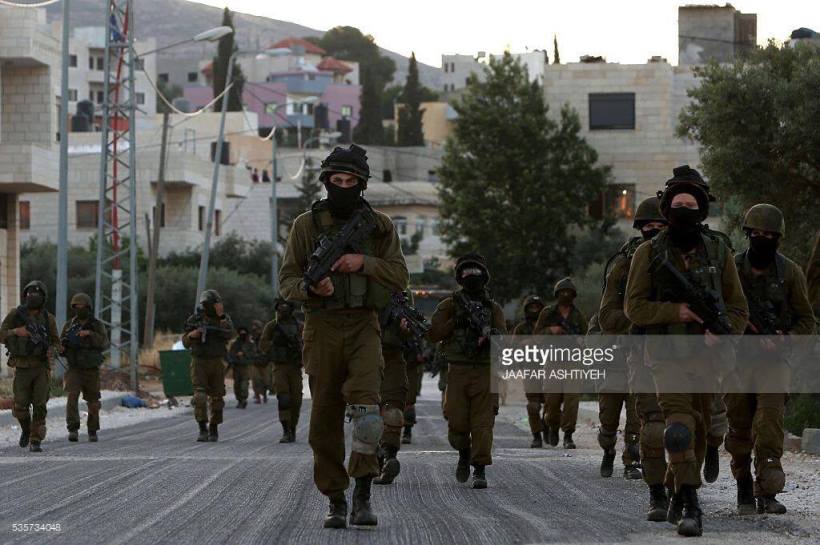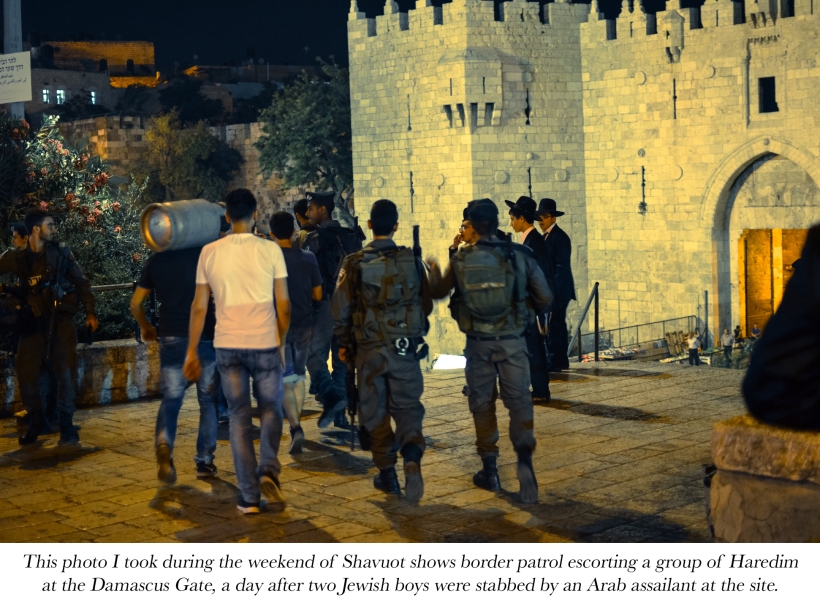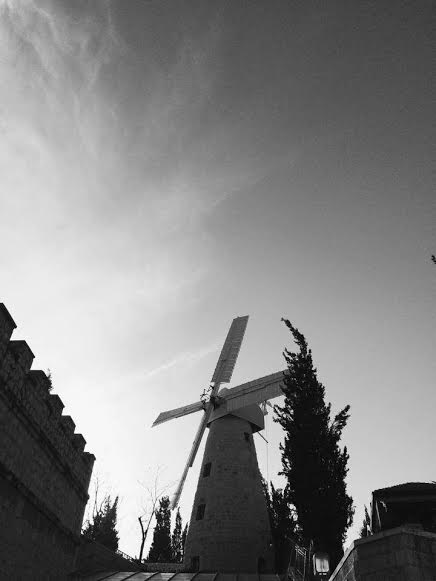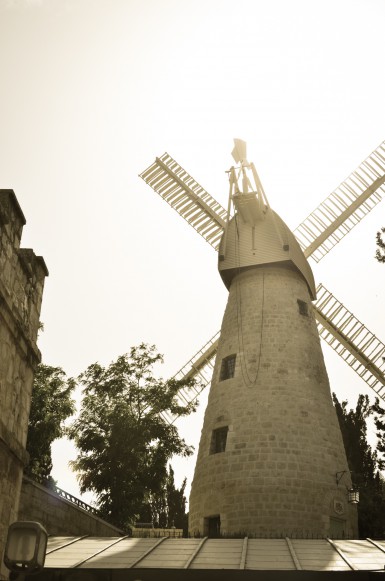The black-shirted instructor stands at the head of our assembly, chest out, ready to bust our ass. His old eyes rest behind the weary strain of crow’s feet, pupils moving silently across our line formation; each time he glances at me, I feel it, like the careful glare of a searchlight ready to expose an unsuspecting intruder.
“Okay,” the weary, strong soul begins, “in this warm up, I will order each of you to sprint around the room, until I say ‘fight’. There will be no cutting corners. Once I give the word, you will stop your laps and immediately break for the bags.”
The old man’s muscular arm reaches outward for the body bags swaying vacant along the gym’s walls.
“I want you to give those bags your all. Punches, kicks, elbows! No mercy! The moment someone stops punching, I want ten pushups.”
Some faces in the motley assembly of trainees I stand in grimace at the threat of punishment. Some of their expressions silently whisper are you fucking kidding me? My mind is far away, imagining the terrible possible: getting caught in an angry mob of Fatah supporters in some hot West Bank village, separated from my brigade, far from assistance.
“Then I will call out ‘fight’, but no more running laps. Instead, there will be bags on the ground behind you, ripe for the beating. After each cycle, there will be one less bag, so expect competition. You will have to fight for your target. The one who doesn’t get to a bag fast enough is out. We will repeat this exercise until there is one person left standing.”
The instructor’s experienced, intimidating aides begin to strategically place small punching bags the size of someone’s torso along the blue rubber floor mat.
“Does everyone understand this exercise? Well? Yallah!”
We begin to sprint orbitally around the gym at top speed. Our diverse group ranges from older women to well-built men; college-age kids to middle-aged professionals. Fit, fierce young women, body-building goliaths, then there are guys like me– wiry, lean, seasoned runner-types. In other words, not ideal.
Yet I am determined to be king of this hill. En brera! No choice!
“Fight!”
I zero in on the hanging body bags. Three quick throws of my clenched fists, the shattering sound of ass-kicking echoes through the room. A few people and I shout insults, as if trying to taunt the inanimate perpetrators.
A kick, two quick thuds of the elbows on the heavy bag.
“Fight!”
I duck and scramble for one of the dozen bags on the floor. Diving with fists wound, I hop onto my target and squeeze it between my thighs. I begin to batter this prone bag mercilessly, my arms recoiling with each lightning-paced sack, a little more tired with each swing. Sweat begins to bead on my forehead. In a real confrontation, I would be pissed by now.
“FIGHT!”
Back to the body bags! A drop kick sends the bag violently swinging back and forth. With each sway, an assault of knuckles produces craters on the glossy material. I begin to feel the urge of vomiting, as my heart wildly pumps blood through my body into my light head, and my legs violently shake from the trauma of the sprints.
“FIGHT!”
Fewer and fewer bags on the ground. The barrage of punches lessen; the will just as strong. Mind fighting flesh to keep on, my sluggish confrontation is being forded by an impassioned rage. I imagine myself in a desperate situation, transforming my body into a weapon that decides the integrity of my lifeline, threatened to be snipped by a showdown with an overwhelmingly large group of potentially armed terrorists. I enter my second wind, jump back to my feet, and charge the body bag behind me.
Transition from defense to offense as quickly as possible.
Do as much damage as quickly as possible.
Two principles of Krav Maga being impounded in me with this brutalizing exercise. An inner-aggression I have repressed shows its rare face, full force.
“FIGHT!”
One bag left on the ground, three fighters. I don’t look at my opponents, I just run. The spirit of 1948 burning in my veins. I dive on top of my target, and beat the absolute shit out of it. I do not see who I took it from until the instructor ends the exercise; one of the heavy-weight instructor’s aides, and a young woman who twisted her ankle in the flight for the last bag. I instantly feel sorry, helping her to her feet, telling me that she is okay.
I was the last man standing.
Breathless, I feel my face peel back in an exhausted grin as we conclude our warm ups. We now delve into the art of Imi Licthenfeld’s renowned martial strategy, contact combat, taught to Israeli soldiers intensively throughout their service for the self-defense of their very lives; is my grin that of ecstasy, or exhaustion? It is both.
—
The temptress of the night is drawing me in with a heavy, sensual pull as my eyelids begin to seal shut; each long breath growing fainter, deeper, like a motor in remission. My mind is spellbound by the disabling hands of a masseuse guiding me inward to unconsciousness.
I am then startled awake by a thunderclap within earshot.
Switching the light on, I discover that the three hardcovers I had tucked into the unstable space on my desk’s side shelf have slammed onto my bedroom’s wood floor.
In vain, I tuck them back in their original place, realize that I had forgotten the Shema prior to my first attempt to fall asleep, pray, then turn the light out.
My book collection is growing out of control.
My minimalist mission of getting rid of belongings in preparation for my immigration is complicated by my growing library, the fact that books will no longer coexist on my overcrowded shelves being one aspect of this issue.
I will also on frequent occasions retreat into the huddle of ceiling-tall cases in bookstores to hunt for paperbacks and pamphlets I can educate myself with, usually dealing with history in the levant, politics, counter-terrorism, Judaism, and language, then I will waltz my way with hands full into the fiction section, eyeing my next fix between butternut pages that will take me far away from the dreary land of impending autumn; the painfully joyful words of Hebrew literature, and the fantasy and adventure of the beatniks.
And it is just when I am fully enveloped in another writer’s words, processing images, conversation, and actions of a fictional collective, my mind ceases to function. I will sometimes look up from my hands to a bokeh of reality; standing in a downtown intersection at my job, momentarily lost, having just been drinking coffee with Yonatan and his wife under a warm lampshade during a rainy Kibbutz night, reading Yonatan’s thoughts of wishing for escape. Like me, except opposite; Yonatan dreams of the big city, I dream of the kibbutz. And a wife.
I must admit that besides maturing a sense of literary style, constructing my vocabulary, and discovering inspiration for my own writing, I only read to get high. And to escape. I believe that I should be focusing on making my own life a beautiful reality worthy of the pages; I need to stop fantasizing and finally jump on the hitchiker’s flatbed with Dean Moriarty on my way to my heart’s Denver.
I meet and befriend an older retiree in a coffeehouse, who is looking to pawn off a monolithic collection of his own. I immediately accept his offer of Plutarch’s Lives and a rusty old book entitled Caesar and Christianity, forgetting my goals in haste.
Looking back on that moment of botched failure, I realize that in other aspects of my life I am breaking discipline; for example, struggling to keep kosher and observing the Sabbath. My book addiction, amplified by fall, I abuse as a retreat from my seasonal depression. Contrarily I think that this is can be a productive time of self-improvement and preparing a strong mental and physical profile for the Army life, as I have previously mentioned.
There comes a point when long-runs and calisthenics do not cut it. I need to go to the gym, and reinforce my diet. Despite the warnings that Israelis are looking for men and women who are mentally devoted rather than those who only hit the weights, I feel this change of direction is needed; a foreign front to aquaint myself with that can only make me stronger and better prepared for what lies ahead. One-hundred and thirty pounds will hardly have an affect on an attacker on the street, unless I risk severely injuring myself. I am coming to terms with my errors, physical, mental, emotional, and I need to immediately remedy them.
Will I dance like David in the Holy Presence, giving this mission my full potential? Or will I break?
—
5775, the current Hebrew year, is in its dusk. Rosh HaShanah, the Head of the Year, begins in less than a day.
It will be my first year as a Jew. It may be my last year in the United States, considering I make Aliyah by next winter.
As a Jew by choice, a man must make certain commitments to devote himself to the tribe. If he is uncircumcised, he must have a bris, he must participate in a ritual mikvah, and make an Aliyah (an ascension, the same name used for Jews immigrating to Israel) to the Torah scroll in the presence of the synagogue’s congregation, to read a passage in Hebrew.
I will not forget the feeling of a veil being lifted when I walked out of the mohel’s office at Park Nicollet in St. Louis Park.
“So, Brendan, what has led you here today?” Doctor Karasov asked as he snapped sanitation gloves over his hands. He was a gentle man with a kind smile, revealing comforting white teeth that shone from rich dark skin. A pink knitted kippah, the yarmulke worn by the conservative and modern orthodox, sat atop graying pepper hair.
I explained, not having assembled my thoughts, the journey I have been on, in brief.
I grew up in a Lutheran household, but my parents were not religious until the summer I left for a Baptist school, my mother becoming born-again. Being a Christian as a teenager, I was familiar with Biblical stories, and Judaism maintained a presence around my developing faith like a forbidden, illustrious aura. Growing older, I became more free-thinking. I fell in love with the Jewish culture and faithful observances. Although I was studying in a strictly Conservative Christian environment, I still maintained desires deep down that began to shape my identity. The inspiring stories of the Jewish people struck a deep chord in me that never quit singing, inviting, as I was beginning to question the defensive, one-sided theology of the professors that seemed to imprison us all in a room without windows. Was Jesus a white man in a three piece suit, driving a Mercedez to campus to preach the errors of atheists and agnostics? Did he really mean to absorb us into the church, contrary to his vagabond ministry that instead went to the broken, oppressed people living in Roman-occupied Judea?
My belief that Jesus is the Messiah has since left me, but faith still remained.
Judaism’s chord kept singing, inviting, but my then-infantile journey was, and still is to an extent, uninviting. Deterring. Hostile, and lonely. Not my community, not my encouraging rabbi, but today’s counterculture and the out-of-reach land of my longing where I could pick a conversation out of dust.
Doctor Karasov smiled at me as he unsheathed a long needle from its cover.
“Well, with this hat’afat da’am Brit (a ritual drawing of blood since I was already circumcised as a child), you are entering a covenant with the G-d of Abraham, who chose us to heal and perfect the world with Him.”
“I want to be a part of this covenant,” I replied.
He smiled and ordered me to pull my britches. He held my member in a firm grasp, began to pray a blessing, and broke skin.
—
One of the many books I have been reading lately is Dr. Michael Oren’s Ally, documenting his time as Israel’s ambassador to the White House.
His journey toward becoming ambassador began in a familiar place that almost mirrors mine; a humble Jewish kid from New Jersey with desires of making Aliyah to experience a new life.
He left for Israel in the late 70’s with nothing more than a backpack. He joined the Paratroopers during the onset of the 1982 Lebanon War, and his account of the brutal training took my focus with force.
“I never forgot the image of those airborne troops dancing in Jerusalem during the Six-Day War and was determined to be one of them. No other unit would do. There were nightlong marches that flayed our feet, and daylong drills crawling through brambles or laying our bodies across barbed wire while others used our backs as springboards. The drinking water was rationed, sleep denied, and showers virtually unavailable; I once went six weeks without one. Less than a third of the unit finished the course, and I often questioned whether I could. While lacing up my boots, my eyes involuntarily welled up with tears. I forced myself to remember the Jews of 1948, who held off Arab armies with handguns, the pioneers who gave their youth, and often their lives, to cultivate a patch of our homeland. It worked. I sleeve-dried my eyes and knotted my laces.”
My chest tightened during his description of the discipline, and my heart beat with raging joy, absorbing his motivation to never quit. I want to be the less-than-the-third. And by my faith and determination, I will pass my gibush (tryout) that Dr. Oren described with passion.
While asking a friend of mine, himself a veteran of the IDF Paratroopers, how to prepare for the gibush, he recommended a program to me that looks every bit as brutal as it is vital: tsevet lochamim (literally “warrior’s team”).
It is a pre-combat training program designed by fitness instructors who have completed service in elite units. One look at the intense training regimen, and I was immediately in.
Hearing back from David, one of the instructors, I was given a date in the Spring for when to join. The trip will immediately follow my two-month plan to study in an Ulpan Hebrew school on a kibbutz between January and February.
And I think about this wildly at Selichot, a poetic choral service taking place a week before Rosh HaShanah. Gazing at the bronze ark doors of Temple Adath Jeshurun, which hold the temple’s covered Torah scrolls, and with my eyes transfixed on the magnificent sandstone stage, I am taken back to Jerusalem.
The beautiful voices of our synagogues’ cantors reverberate through the pews and echo on the walls.
Shomer Yisra’el, sh’mor sh’erit Yisra’el,
v’al yovad Yisra’el, ha’omrim sh’ma Yisrael.
Shomer goi ehad sh’mor sh’eirit am ehad,
v’al yovad goi ehad, ham’yahadim shimkha Ad-nai el-heinu Ad-nai ehad.
Guardian of a unique people,
guard the remnant of that people.
May none perish of the people
that proclaims: “Ad-nai is our G-d, Ad-nai is one.
The shofar blows.
Everywhere, we, the congregation, wish each other “Shanah Tovah“, “good new year”, as we prepare for 5776.
My first year of being a Jew, the year I prepare my springboard for Aliyah, ready to crawl through brambles and flay my feet.




